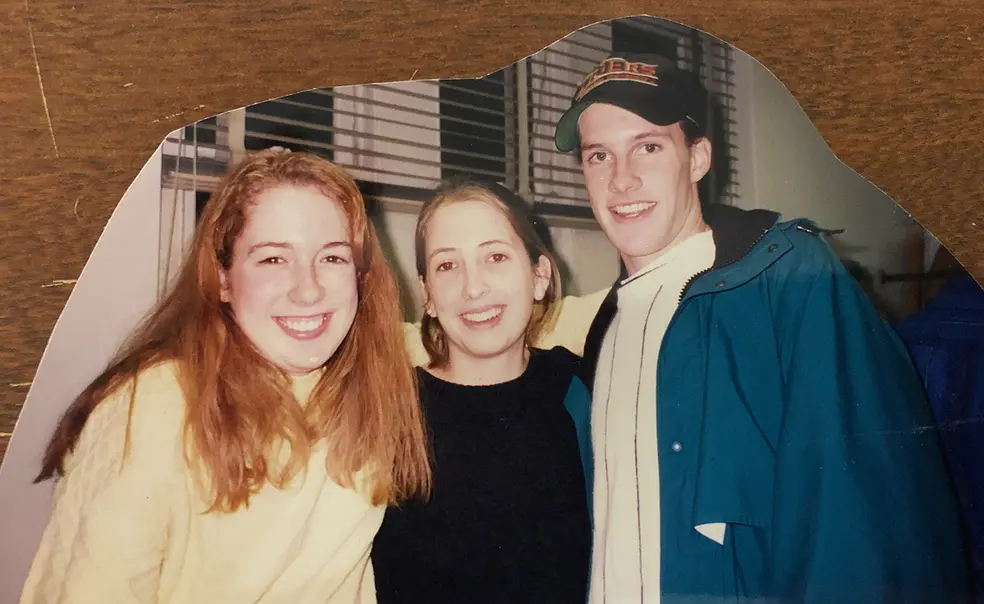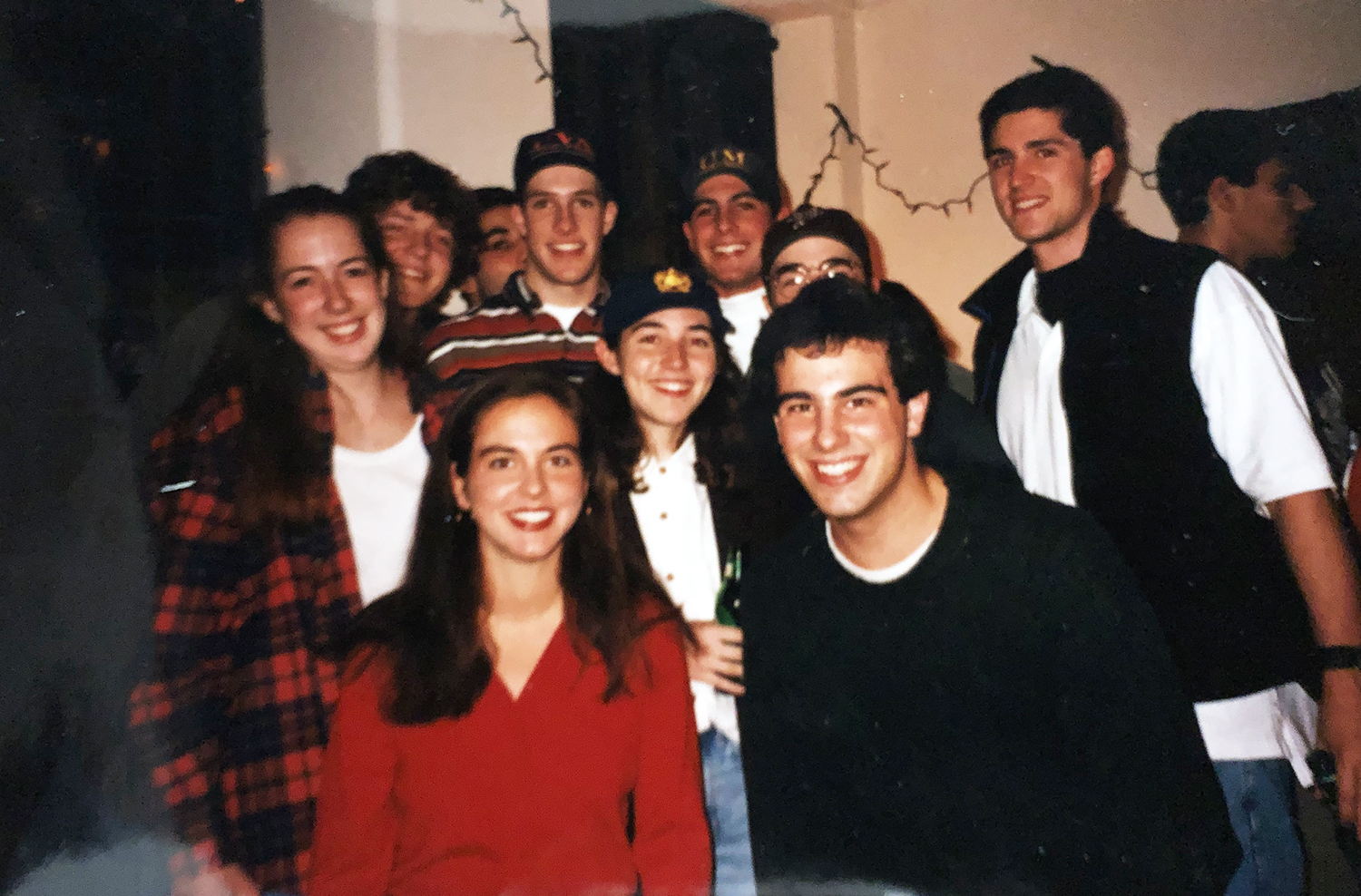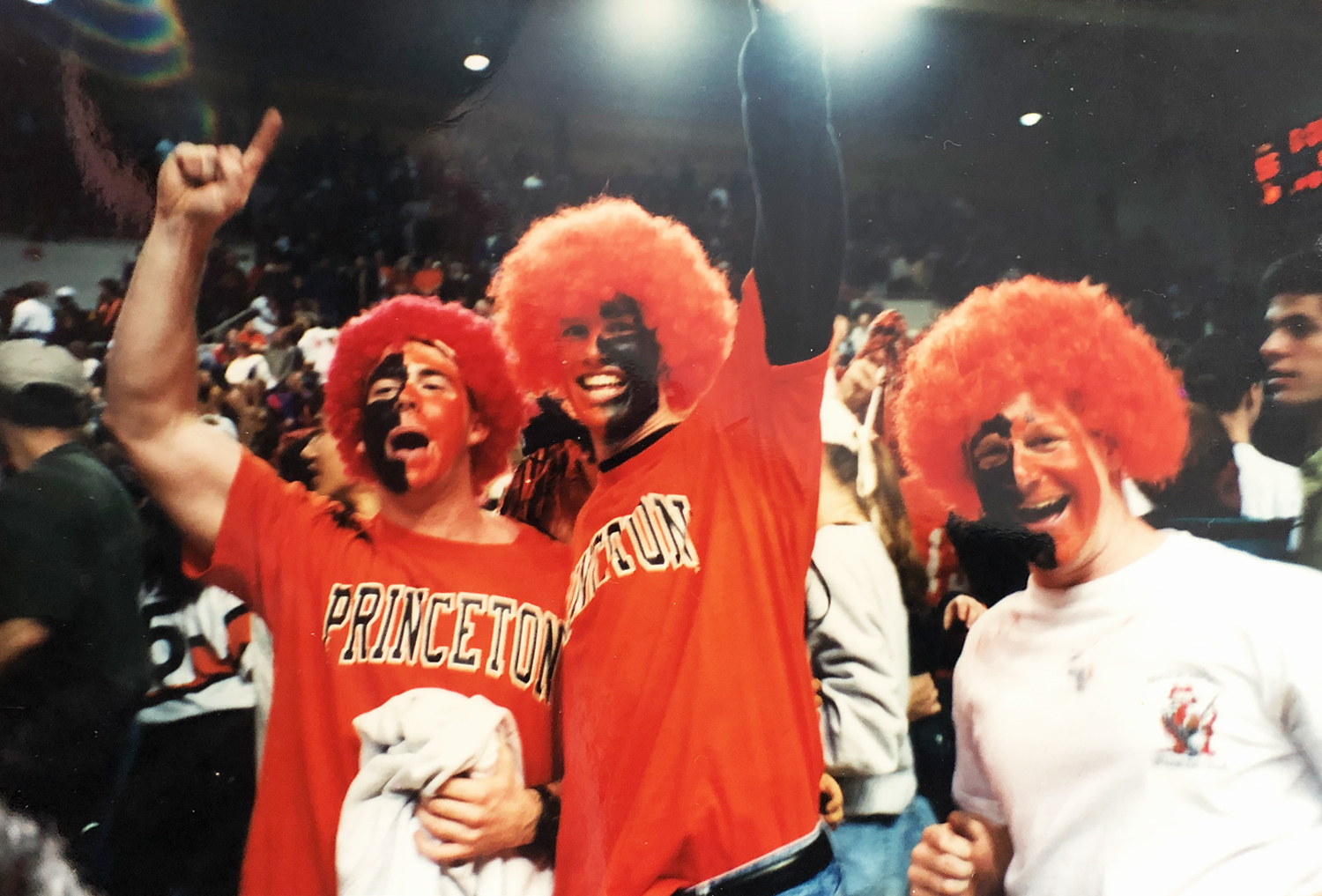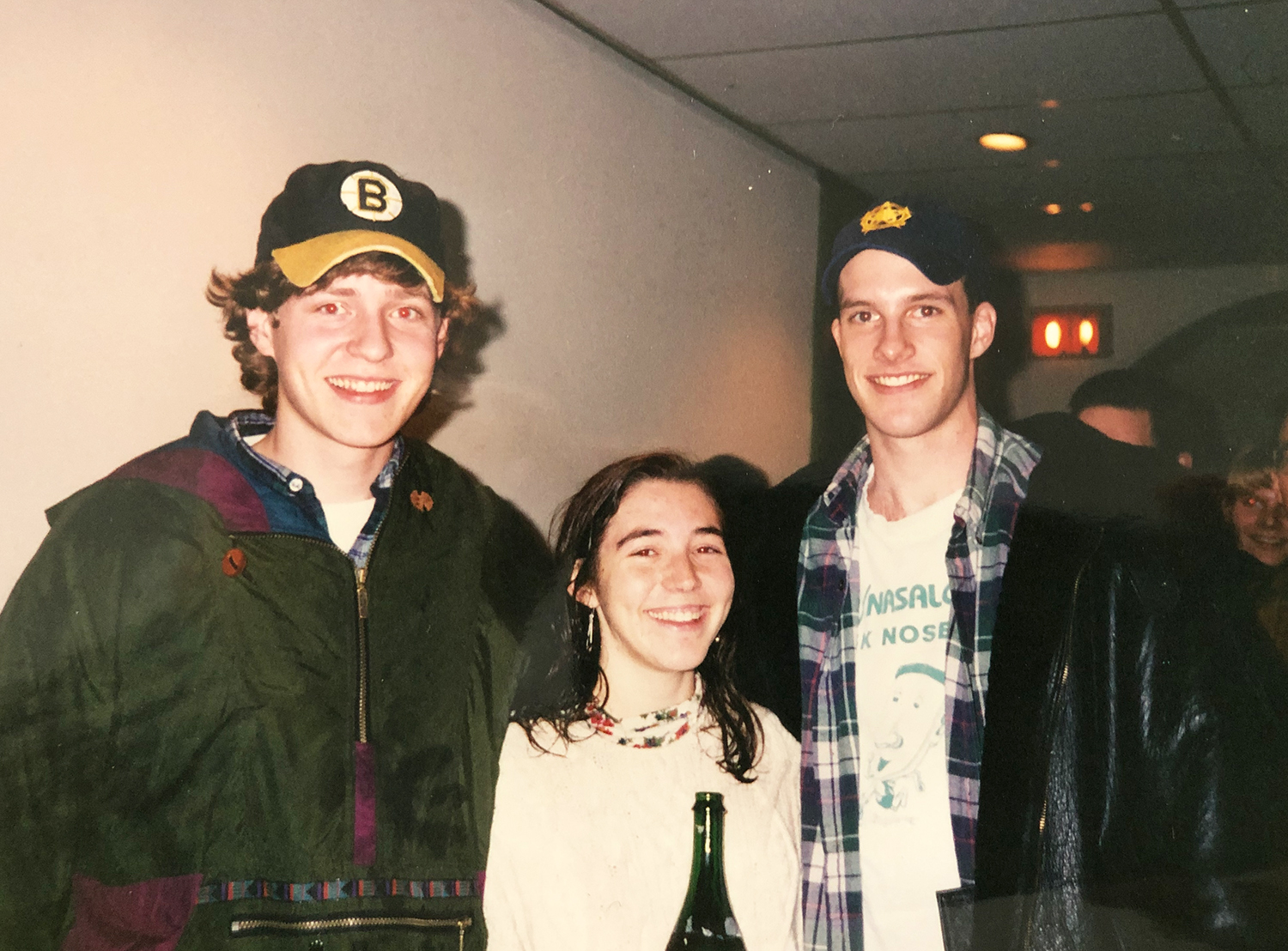From the Editor: Grant Wahl ’96 Stood Out as a Student Journalist and After
Between the deadline stress, the disagreements, and the laughs at The Daily Princetonian in the mid-1990s, there were times when staff members couldn’t help but stop and admire the work of one of their colleagues.
Before Grant Wahl ’96 was a world-famous soccer journalist, he was a Princeton student with a special talent. His colleagues could see it in how he did the work, and the readers could see it in his elegant writing and smart reporting.
“For a very small group of us who were in that room with [Grant] every afternoon and a lot of evenings in ’94, ’95, and ’96, it was a golden era,” said Justin Pope ’97, co-sports editor in 1996-97. “There was this energy and kind of cockiness, and it came from the top, and he was the person who sat on that tower. Grant created an environment that people wanted to be a part of and wanted to do ambitious work.”
Grant, 49, died Dec. 10 while covering a World Cup match in Qatar. After saying he felt ill for a few days, Grant collapsed in the press box and could not be saved by paramedics. His wife, Celine Gounder ’97, said an autopsy performed by the New York City Medical Examiner’s Office revealed the cause of death was an aortic aneurysm.“The chest pressure he experienced shortly before his death may have represented the initial symptoms,” she wrote. “No amount of CPR or shocks would have saved him. His death was unrelated to COVID. His death was unrelated to vaccination status. There was nothing nefarious about his death.”
A reporter for Sports Illustrated from 1996 to 2021, Grant wrote about college basketball and LeBron James before devoting himself to soccer. His impact on the game in the U.S. has been immense. Many of the tributes from around the world have credited him with being a visionary. Prominent soccer figures, athletes, and politicians expressed their heartache and sent condolences to Celine and Grant’s family.
I got to know Grant through my wife, Malena (Salberg) Barzilai ’97, who worked with him at the Prince, and in my previous life as a sports journalist. I was thrilled when he wrote a profile of Leeds coach Jesse Marsch ’96 for the November issue of PAW. We talked about the World Cup and how he was looking forward to covering it and continuing to grow his Substack website, “Futbol with Grant Wahl.”
His death has deeply hurt the Princeton community and reminded many not only of his immense skills as a journalist but also his kindness and warmth.
“He would walk you home to make sure you got back to your dorm room because he was that guy,” said Allison Slater Tate ’96, another colleague at the Prince who has remained close to Grant and Celine. “His smile was so big and welcoming. He was like my brother. And I loved him with my whole heart.”Grant was also fiercely courageous. Whether it was running for president of FIFA in part to highlight corruption within the world governing body of soccer or wearing a rainbow T-shirt to the U.S.-Wales match in Qatar on Nov. 21 to support LGTBQ rights, he did not shy away from a good fight.
“He had such a mature sense of journalism,” said Nate Ewell ’96, who was a co-sports editor in 1995-96 and worked with Grant on one of his most memorable, and courageous, stories at Princeton.
Writing in the Prince for the last time, Grant authored a thorough rebuke of future Hall of Fame men’s basketball coach Pete Carril shortly after his retirement. “Privately, in practice or in the locker room, what you haven’t seen is the daily hell promulgated by ‘Princeton’s professor of basketball,’ whose vicious assault on the characters of his ‘students’ would have gotten any real professor fired, on the spot,” Grant wrote.
Ewell said that several months before that story ran, “he and I met with the whole basketball team and heard their concerns. [Grant] was asking how we should approach this story? What was the right way? What was the ethical way?”
Said Pope: “He delivered the goods. He did the reporting. He talked to people. He wasn’t just [an] undergraduate firing off a story. It was the difference between activism and journalism.
“That piece inspired people to be more courageous and showed what student journalists can do. But at the end of the day, he was just a better reporter than everybody.”
Ewell, who is now vice president of communications for the NHL’s Vegas Golden Knights, said he learned from Grant how to be a better journalist — and that he shouldn’t be a journalist.
“I’m not joking at all when I say I wouldn’t be here if it wasn’t for him,” he said. “I wanted to be a sportswriter, but I looked at [Grant] and said, I can’t do this. I’m not Grant. None of us were.”But like a great teammate, Grant made those around him better.
“He had this innate goodness,” Slater Tate said. “Not that he didn’t have an edge, but that edge is why he would wear a freaking rainbow shirt to a game in Qatar. He was like, ‘Screw it, I'm going to do the right thing,’ and we all admired and loved him for that.”













3 Responses
Robert L. McGahey Jr. ’71
3 Years AgoAn Important Role in Advancing Soccer
Grant Wahl and I both went to Shawnee Mission East High School and Princeton, albeit many years apart. But we shared a love for real football, the kind you play with your feet.I was an avid follower of his writing from when he started at Sports Illustrated. He was simply brilliant in every way. The hole he leaves isn’t fillable. He was – and is – as important to the advancement of soccer in the United States as any single person ever. He will be missed by me and by everyone else who cares about the game.
Bill Watts ’72
3 Years AgoA Truly Great Soccer Fan
Thanks so much for the article on Grant Wahl ’96 (Editor’s Note, January issue). I have played soccer since the 1950s and coached my son’s team from kindergarten through high school. I have followed and respected Grant for his compassion, commitment, and knowledge. He was my go-to for anything soccer. He will truly be missed.
Greg Dale ’81, Charles Dale ’78, Grace Dale
3 Years AgoAn Appreciation from the Dale Family
When my sister, Grace, heard about the tragic passing of Grant Wahl while he was covering the World Cup in Qatar, she couldn’t stop crying … and she didn’t even know him personally. We had reached out to Grant only a few weeks prior, along with over 300 other recipients of the Martin A. Dale ’53 Summer Award, as part of a 30-year retrospective asking for his recollections of his Dale Summer, and how it had affected his life then and since. Grant responded right away with such warmth, generosity, and enthusiasm that it deeply touched our hearts. Our father was so proud of all of the Dale Award recipients, as if they were his “children,” and somehow the loss of Grant felt to my sister like she had lost a member of the greater Dale family (especially after losing our younger brother, Eric, to a sudden cardiac incident last year). Here is a portion of what Grant shared with us about his Dale Summer experience:
“First off, a huge thank you to you and your family for everything you have done for me and for others with the Dale Award. It has had an immense impact on my career and life. In the summer of 1994, I spent three weeks in Buenos Aires and three weeks in Boston doing magazine-style journalism on the people around the cultures of the sports of soccer in Argentina and baseball in Boston. It was my first trip outside the United States in my life. In those days, my career goal was to become a writer at Sports Illustrated.
“The trip confirmed for me that I really did want to become a sports journalist writing high-level magazine stories. It also showed me that I could take on ambitious projects and do them well. I ended up going back to Buenos Aires a year later for three months and doing research for my senior thesis on politics and soccer in Argentina. That thesis won the awards given by the politics and Latin American Studies departments.
“Partly with the help of the stories I wrote for a campus publication off my Dale trip, I got an entry-level position at Sports Illustrated as a fact-checker upon graduation in 1996, became a full-time writer at Sports Illustrated in 1997, and ended up spending 25 years there as a soccer writer. I have written two books, including a New York Times Best-Seller, and for the past year I have had my own subscription writing site at GrantWahl.com. It’s doing well, with nearly 2,800 paid subscribers, and in November I will cover my 13th World Cup (eight men’s, five women’s) in Qatar. The first World Cup I covered was in 1994 when I attended two Argentina games in Boston as part of my Dale trip.
“… What I can tell you is the Dale Award has had a huge impact on me. And it’s part of the reason I like to spend time advising young aspiring journalists who contact me today. About a month ago, I was in London for a game and met up with a writer I had spoken to back in 2015 when he was just starting out. Now he’s at Sports Illustrated. It was great to catch up with him and be reminded that I can have an impact on young people too.”
The Dale Family sends our deepest sympathies to Grant’s wife, Celine Gounder ’97, and to his brother, Eric, and wish them profound peace and healing.
Sincerely,